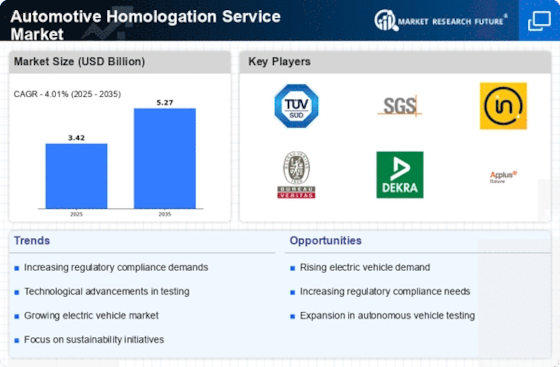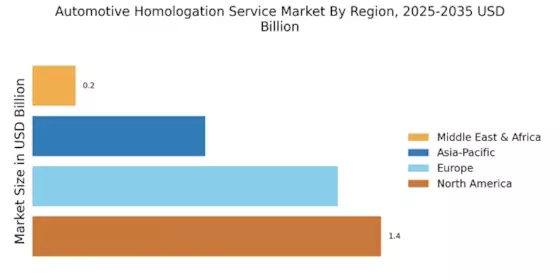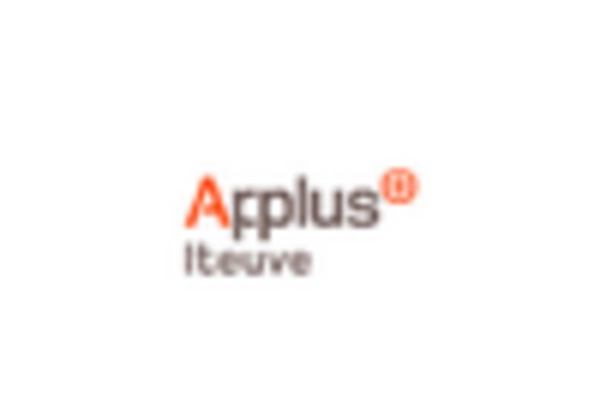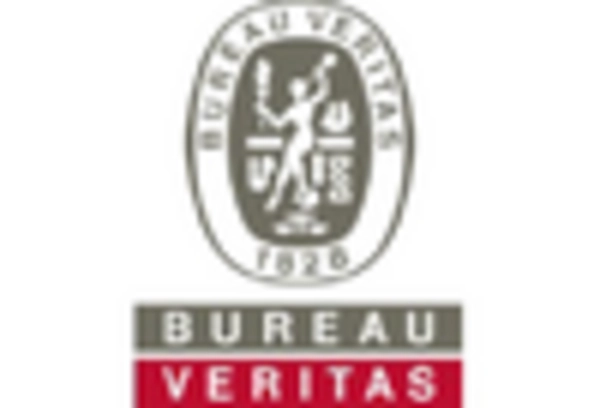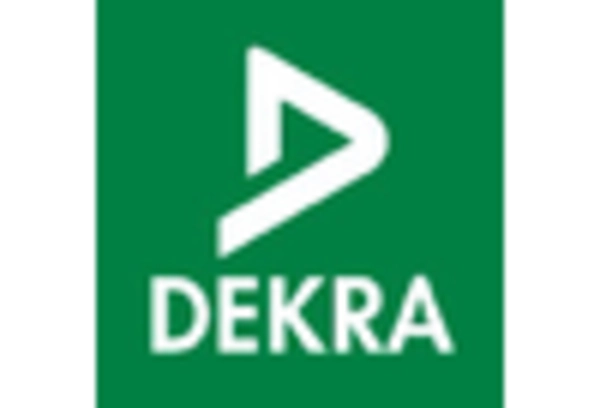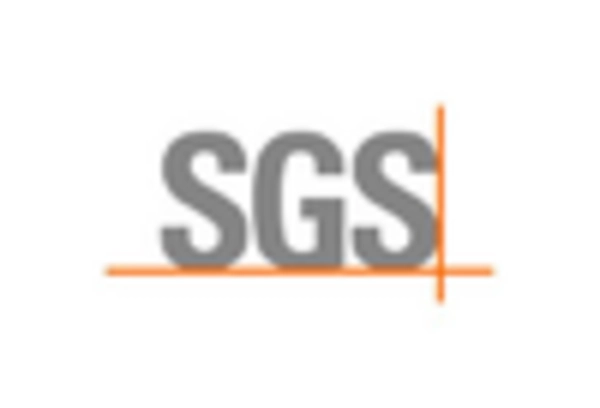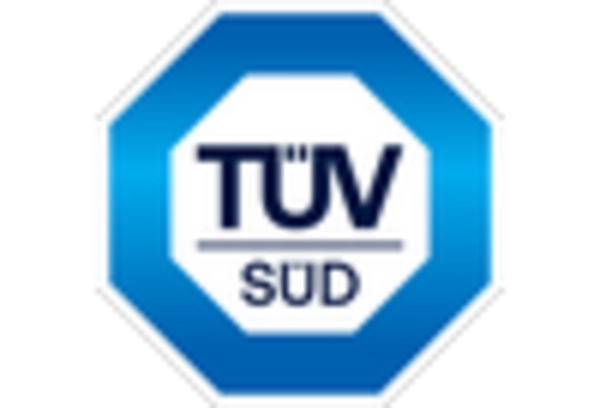Regulatory Compliance
The Automotive Homologation Service Market is significantly influenced by the stringent regulatory frameworks imposed by various governments. These regulations are designed to ensure that vehicles meet safety, environmental, and performance standards before they can be sold in different markets. As countries continue to tighten their regulations, manufacturers are compelled to invest in homologation services to avoid penalties and ensure market access. For instance, the European Union has implemented rigorous emissions standards that require extensive testing and certification. This regulatory landscape creates a robust demand for homologation services, as compliance is essential for manufacturers aiming to maintain competitiveness in the automotive sector.
Consumer Safety Awareness
Consumer safety awareness is a driving force in the Automotive Homologation Service Market. As consumers become more informed about vehicle safety features and environmental impacts, they increasingly demand compliance with safety standards. This heightened awareness compels manufacturers to prioritize homologation processes to ensure their vehicles meet or exceed safety regulations. In 2025, it is estimated that the market for safety features in vehicles will exceed 100 billion USD, underscoring the importance of homologation services in validating these features. Consequently, the demand for homologation services is likely to grow as manufacturers seek to enhance their product offerings and build consumer trust.
Sustainability Initiatives
Sustainability initiatives are reshaping the Automotive Homologation Service Market as manufacturers strive to reduce their environmental footprint. The push for greener technologies, such as hybrid and electric vehicles, necessitates comprehensive testing and certification to ensure compliance with environmental regulations. In 2025, the market for sustainable automotive technologies is expected to reach 200 billion USD, indicating a significant shift towards eco-friendly vehicles. This trend creates opportunities for homologation service providers to assist manufacturers in navigating the complexities of sustainability regulations. As the automotive industry increasingly prioritizes sustainability, the demand for homologation services is likely to rise, reflecting the industry's commitment to environmental responsibility.
Technological Advancements
The Automotive Homologation Service Market is experiencing a surge in demand due to rapid technological advancements in vehicle design and manufacturing. Innovations such as electric vehicles (EVs) and autonomous driving technologies necessitate rigorous testing and certification processes. As manufacturers strive to meet evolving safety and environmental standards, the need for homologation services becomes increasingly critical. In 2025, the market for EVs is projected to reach approximately 30 million units, highlighting the importance of homologation in ensuring compliance with international regulations. This trend indicates that companies specializing in homologation services are likely to see substantial growth as they adapt to the complexities introduced by new technologies.
Market Expansion Opportunities
The Automotive Homologation Service Market is poised for growth due to expanding market opportunities in emerging economies. As automotive manufacturers seek to enter new markets, they must navigate diverse regulatory environments that require homologation services. Countries in Asia and South America are witnessing a surge in vehicle production and sales, creating a demand for homologation to ensure compliance with local regulations. In 2025, it is projected that vehicle sales in these regions will increase by over 15%, further driving the need for homologation services. This expansion presents a lucrative opportunity for service providers to establish a foothold in these burgeoning markets, thereby enhancing their growth prospects.


